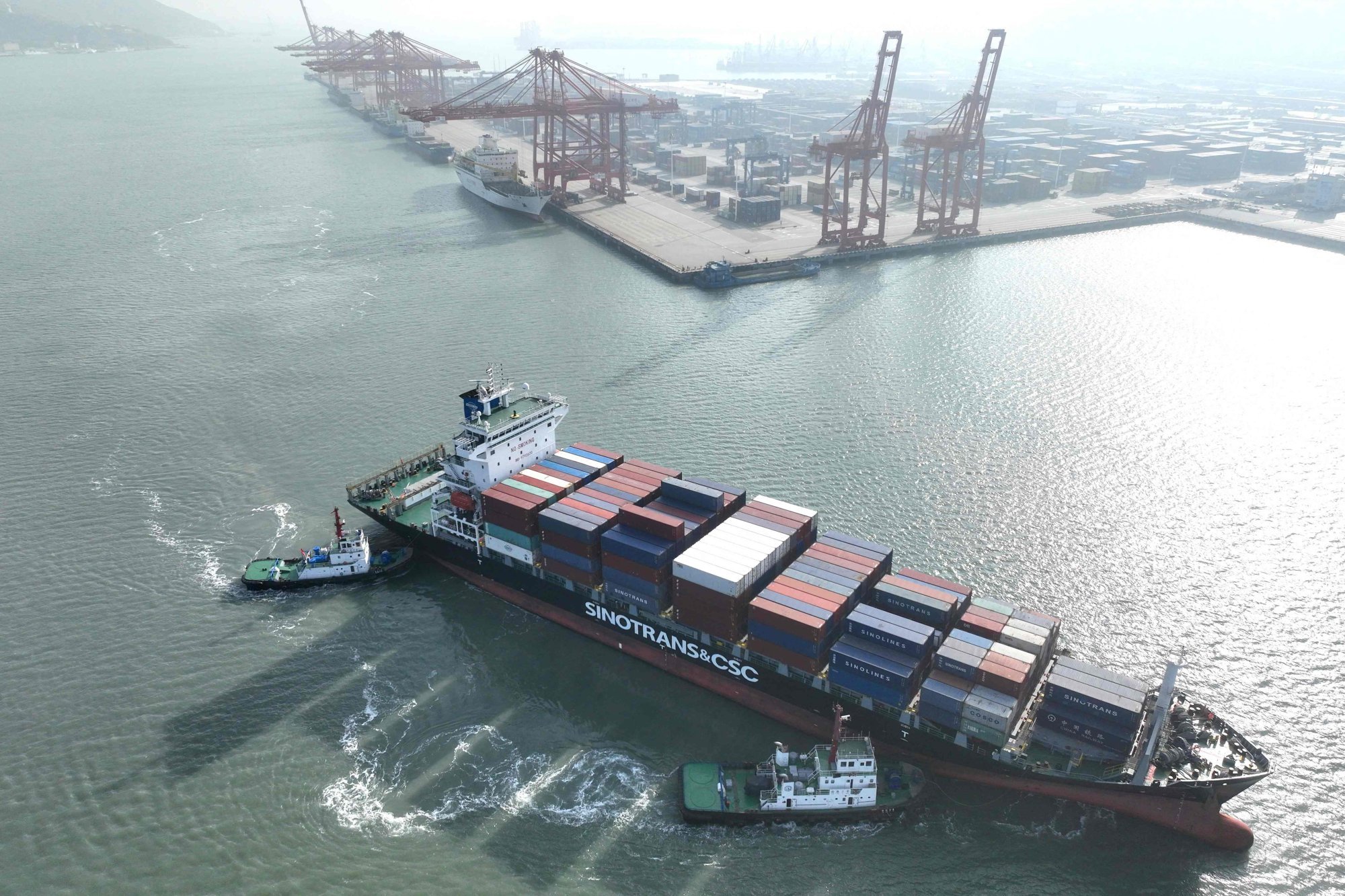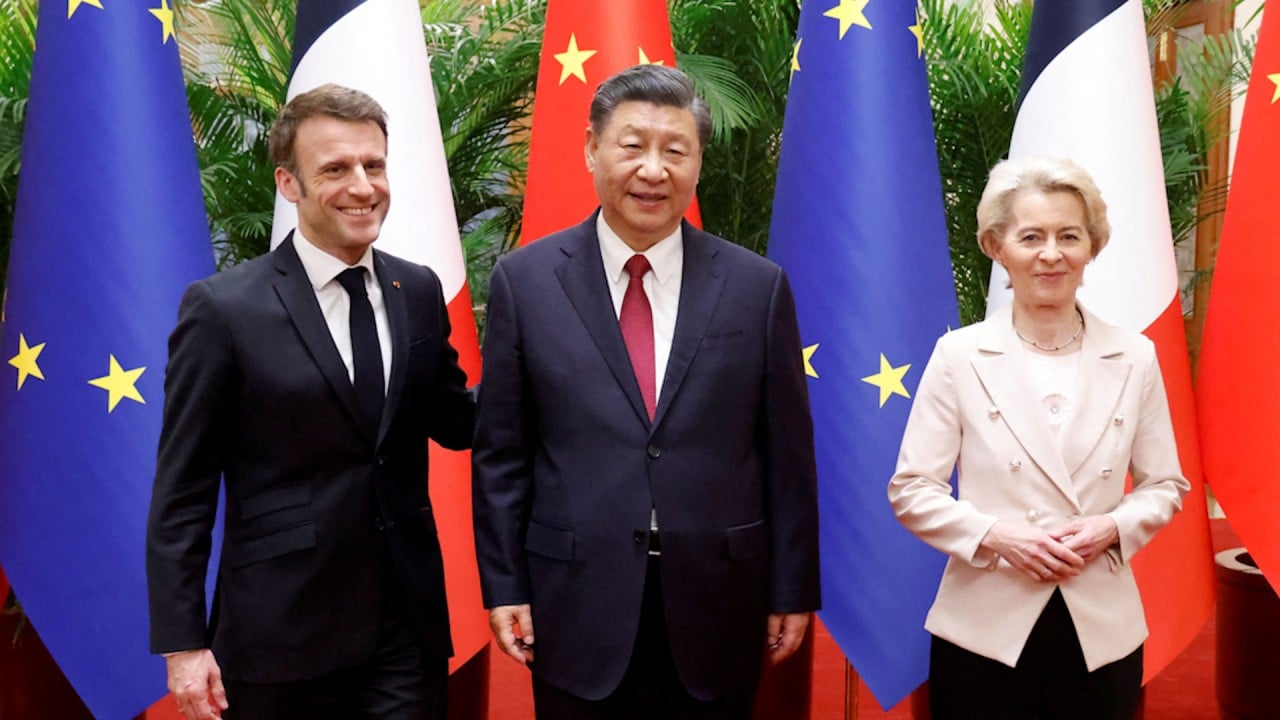
EU fails to pass law requiring human rights and environmental audits on Chinese suppliers
- The rules did not name China directly, but major EU firms would have been required to carry out detailed audits on foreign business partners
- European Parliament’s top negotiator ‘outraged at the political games being played’ on due diligence law
The rules would have required EU firms with more than 500 staff and €150 million (US$162.7 million) net turnover worldwide to conduct detailed audits of their suppliers and partners, including those in China.
Three years after first coming into force, they would also then be extended to cover non-EU companies who have over €150 million net turnover generated in Europe.
However, a Wednesday vote of the bloc’s 27 members in Brussels fell short of the qualified majority required to adopt the rules.

A French diplomat confirmed that Paris had suggested raising the threshold of firms in the directive to those employing more than 5,000 employees, a motion that may now need to be examined as negotiators go back to the table.
In a statement, the Belgian government – which now holds the rotating EU presidency – said the “necessary support wasn’t found”.
“We now have to consider the state of play and will see if it’s possible to address the concerns put forward by member states, in consultation with the European Parliament.”
Lara Wolters, the European Parliament’s chief negotiator on the file, said she was “outraged” by the vote.
“Outraged at the political games being played in [European] Council today on due diligence. Flagrant disregard for the European Parliament. Member states need to get their act together because time is running out,” the Dutch lawmaker wrote on X.
An EU diplomat said members abstained for reasons that included the “administrative burden” and “fear of an uneven playing field on the global stage”.
Pro-business political parties around Europe were concerned about the administrative burden the rules could require. Companies had also warned the laws would have left them disadvantaged when competing against firms that do not have to comply.
An earlier vote scheduled for February 9 was delayed after member states, including Germany and Italy, said they would abstain.
It is the latest in a series of proposed EU rules on environmental issues that have failed to attract the support of its capitals in the run-up to June’s European Parliament elections.
China urges Germany to reject protectionism as EU steps up economic security
Businesses operating in China, where gathering detailed supplier information can prove difficult, would have found it especially tricky to navigate the due diligence law.
European businesses are already scrambling to establish how to comply with Beijing’s anti-espionage laws and stringent rules on the export of data gathered within the country.
Companies that did not comply with the proposed EU rules could have been sued by affected groups or slapped with hefty fines. They would also have been forced to terminate supplier relationships when it was not possible to fix the ill effects.
Chinese businesses have previously criticised the law’s potential for “excessive administrative burdens and disproportionate liabilities on companies”.

“The most problematic aspect of the proposal lies in the fact that it requires subject companies to exercise due diligence along their entire value chains, both directly and indirectly, at a level which goes beyond their control and capabilities,” read a written submission from the China Chamber of Commerce to the EU in 2022.
Media reports suggested that Italy had abstained on the due diligence law in exchange for Germany’s withdrawal of support for a law regulating plastic packaging.
Germany’s last-gasp abstention earlier in February set off a frenzied campaign among lawmakers, lobbyists and business figures who supported the law.
“If you want to make sure that all your supply chains lead straight back to China, if you want to continue whingeing about it and wailing about it and doing nothing about it, then … don’t adopt the human rights corporate responsibility directive,” Andrew Forrest, the chairman of Australian mining group Fortescue, told the Financial Times.
China rails against EU’s train subsidy probe – will relations stay on track?
He said that while European firms were required to fully audit their “sub-suppliers”, the same may not be required of Chinese competitors “who come [to the market] with a full product”.
A deal looks tricky here too. There are differences on who should administer a ban, with the EU’s member states insisting the European Commission should be responsible. Commission sources, however, complain that they are short-staffed.
Heidi Hautala, a senior Green Party lawmaker, said the council now had two weeks to come up with an alternative plan, otherwise it will be kicked down the road until after the elections.
“Pushing the directive to the next term would jeopardise the whole legislative project. Political will and leadership at the highest level is now needed to break the deadlock,” she said.
Hautala added that the minority German coalition party, the Free Democrats, had “succeeded in its sabotage and pulled along several member states” with it.


